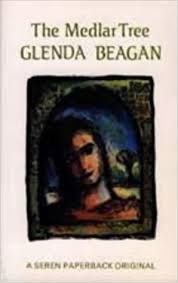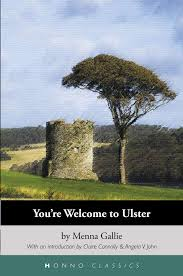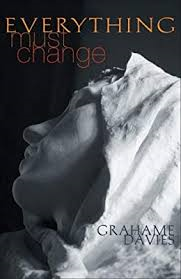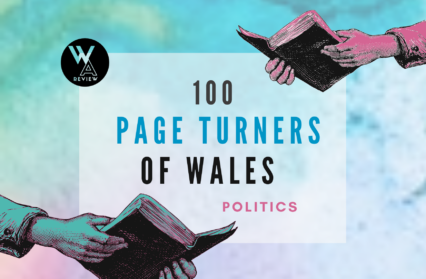Politics | Emma Schofield takes a closer look at the books chosen by our judging panel in the ‘Politics’ category of our 100 Page Turners of Wales series.
As Wales remembers one of its most prolific writers and cultural figures, it seems fitting that the next category in our 100 Page Turners series is ‘Politics’, a category in which almost any of Emyr Humphreys’ many novels could have been included. As it is, it’s one of my personal favourites which our judges nominated in this category, Humphreys’ 1958 tale of politics and national identity, A Toy Epic. The story of friends Michael, Albie and Iorwerth developing their respective identities, beliefs and political values is one of the most poignant political texts I’ve so far come across. Humphreys weaves his story with an abundance of skill, giving voice to the three young men who find their personal development balancing on a precipice which the reflects the uncertainty of political and national identity in early twentieth century Wales. It is a narrative which follows its three protagonists as they transition from adolescents to young men, addressing concepts of nationalism and the dilemma of war as it does so.
Of course, A Toy Epic is not the only text chosen by our judges in this category to focus on the political and personal effects of war. Kate Roberts’ Feet In Chains (originally published in Welsh as Traed mewn Cyffion) offers a realist insight into the struggles of a working class community, centred on the slate mining industry in North Wales at the turn of the twentieth century. The novel delves into issues such as low wages, the struggle for food, the perils of becoming ill or injured and culminates by exploring the devastation wreaked on one family by the arrival of the First World War. It is a powerful story, recounted from the perspective of matriarch Jane Gruffydd.
Fast forward to 1949, with war still a very strong undercurrent in much of the political writing from Wales, and we reach Gwyn Thomas’ widely acclaimed novel All Things Betray Thee. Charting the impact of industrialisation on South Wales, Thomas sets the novel in a fictionalised town and draws on historical events such as the 1831 Merthyr Rising to tell a tale of industrial conflict, populist movements and, ultimately, friendships put to the test by these rapid political and industrial changes. It’s a big leap from here to another of our judges’ nominations, Glenda Beagan’s 1992 collection The Medlar Tree, a brilliant collection of short stories, significant in its exploration of the lives of women in North Wales in the late twentieth century. Stories include the unforgettable ‘Scream, Scream’ in which a woman emits an unstoppable scream once every three years in response to an event which happened to her years before. It is an unsettling story which, like others in the collection, does not shy away from depicting the contradictions and cruelties of societal oppression of female suffering.
It wouldn’t be a list of political works from Wales without an exploration of what is arguably the most significant political development of modern Wales: the implementation of devolution. Grahame Davies traces this in his novel Everything Must Change (first published in 2004 as Rhaid i Bopeth Newid), questioning how devolution may affect Wales at every level of society. The novel brings together the life of French philosopher and activist Simone Weil, with the story of political campaigner Meinwen Jones who finds herself somewhat lost in the transition to post-devolution Wales.
In truth, in literature as in life, politics is rarely far away and a case could probably be made in favour of including, in this category, a number of the books already featured elsewhere in our list of page turners. Yet in the end, the ten books chosen here were those nominated by our judging panel as they spoke directly to them. There are countless others equally worthy of attention in this category, but the ten books here should prove to be a powerful, and thought-provoking, starting point for exploring one of the richest themes of writing from Wales.

Politics
A Toy Epic by Emyr Humphreys (1958)
Synopsis: A Toy Epic is the story of three boys moving towards the threshold of adult life in the Thirties. From differing backgrounds, their lives cross and touch until they become firm friends. Each of them, Michael, Albie and Iorwerth, take up the story in turn, creating their own particular world and contributing to the composite picture of ’one of the four comers of Wales’.
Review Quotes:
‘Few British novels of the Fifties repay rereading more than A Toy Epic (1958), which earned Emyr Humphreys critical plaudits in a year notable for distinguished fiction.’ The Independent
Resources:
A Toy Epic: Greatest Welsh Novel Nomination
A Toy Epic: Wales Literature Exchange
The Medlar Tree by Glenda Beagan (1992)

Synopsis: The Medlar Tree was Glenda Beagan’s first collection of short stories and introduced readers to a host of ordinary and extraordinary characters: Gypsy Hayes, who really can read the future but doesn’t like what she sees; slightly sinister old Mrs Mossop; the terribly embarrassed young Hafwen; Mrs Jenkins, Sgubor Fawr, who every so often screams for a day. A French teacher waiting for her environmentally-sound lover, the mysterious and escaping Mrs Prosser, the poppy growing Laura, are on the brink of revelations which will transform their lives and surprise the reader.
Review Quotes:
Resources:
Wales Online: Morning Serial – Glenda Beagan
The Last Hundred Days by Patrick McGuinness (2011)
Synopsis: Moving beyond Wales with this nomination, The Last Hundred Days is a semi-autobiographical account of the fall of communism in Romania. Once ‘the Paris of the East’, Bucharest in 1989 is a world of danger, repression and corruption, but also of intensity and ravaged beauty. As Ceausescu’s demolition squads race to destroy the old city and replace it with a sinister Stalinist Legoland, its inhabitants live out communism’s dying days not knowing how or where things will end. In ‘The Last Hundred Days’ a young English student arrives in Bucharest to take up a job he never applied for and whose duties are never made clear. He finds dissidents, party apparatchiks, black-marketeers, diplomats, spies and ordinary Romanians, all watching each other as Europe’s most paranoid regime plays out its bloody endgame. The Last Hundred Days was McGuinness’ first novel.
Review Quotes:
‘It’s a brilliant first novel set in 1989, in the writhing demise of communist Bucharest – dark, immaculately written, bitterly lucid and very gripping.’ James Wood
‘A coming-of-age story with a vivid historical backdrop.’ Washington Post
Resources:
The Last Hundred Days: Review, The Guardian
Interview with Patrick McGuinness: Foyles
Man Booker: Seren’s Patrick McGuinness Makes Longlist
Griffri by Christopher Meredith (1991)
Synopsis: Griffri ap Berddig is a poet in late twelfth century Wales who tells his life’s tale to a Cistercian monk. In Griffri’s day, the Welsh, ever preoccupied with internal feuding, see the Normans and the English settle their lands and erode their sovereignty. Griffri sings his songs of praise to native princes, and composes songs of mourning for an ancient aristocracy whose end is nigh. The book, written as an autobiography, begins in the time of Griffri’s youth. A serf by birth, he can expect no life other than his parent’s. His father, however, dies valiantly fighting the foreigner. As recompense, Griffri is fostered by the nobility, and his education is entrusted to Gwrgant, a historical figure and professional poet. As a youth, Griffri learns bardic rhetoric, hunts, and wonders at the vastness of the world beyond his prince’s court. But in the woods there is unrest and danger.
Review Quotes:
‘Meredith flawlessly evokes the powerful language of a man trained as a repository of oral tradition and history.’ Publishers Weekly
‘His Middle Ages also manage to be universal. Writers are too often tempted to write about writing, and it rarely comes off. Meredith has found a way which does.’ The Independent on Sunday
Resources:
Christopher Meredith: Author Website
The Rebecca Rioter by Amy Dilwyn (1880)
Synopsis: First published in 1880, The Rebecca Rioter is a novel based the notorious Rebecca Riots in south and west Wales in the early nineteenth century. The story tells the tale of Evan Williams, a young working-class man, struggling to come to terms with the injustice and social inequalities of the world he lives in. His rebellious actions have dramatic consequences, not only for himself, but also inadvertently for the woman he loves.
Review Quotes:
Resources:
Literary Atlas of Wales: The Rebecca Rioter
The Rebecca Rioter: Wales Online
You’re Welcome to Ulster by Menna Gallie (1970)

Synopsis: One of the very first novels to confront The Troubles in Northern Ireland, this compelling story also reflects the bid for sexual freedom of the late 1960s. Sarah Thomas has a life-threatening illness and decides that it is time for what might be her last holiday and opportunity to revisit old friends and a lover in Ulster. Unwittingly her visit coincides with the Twelfth of July. From the moment she drives off in her hired Mini, Sarah becomes entwined with the deepening political crisis that is enveloping Northern Ireland and even impinging on her native Wales. You’re Welcome to Ulster brings a uniquely Welsh perspective to the unfolding tragedy and its causes and is written with Menna Gallie’s customary wit, verve and insight.
Review Quotes:
‘A striking novel, You’re Welcome to Ulster is a significant and exciting text.’ Planet
‘A fascinating double perspective on political agitation in both Wales and Northern Ireland…. Gallie uses a love story through which to portray and critique the mores, political and religious, of Ulster’s Protestants and Catholics but also to describe how these look through a Welsh lens.’ Angela Graham
Resources:
A Welsh Novelist of Northern Ireland
Feet in Chains by Kate Roberts (1936) [translation by Katie Gramich]
![Politics | Feet in Chains by Kate Roberts (1936) [translation by Katie Gramich]](https://www.walesartsreview.org/wp-content/uploads/2020/10/FIC.png)
Review Quotes:
‘This is a Welsh society in flux, with families struggling to come to terms with the rapid changes brought on during the late nineteenth and early twentieth centuries. In the end, Roberts’ characters… deal with this by avoidance rather than action, and the wounds grow under the surface for many years, slowly distancing mother and daughter, brother and sister.’ James Vilares
‘Direct and brilliantly convincing…A comparison with Russian literature is tempting…The frustration and hopelessness…of Chekhov’s…characters resemble the peasants and quarrymen of Kate Roberts’ narrower world.’ Storm Jameson
Resources:
The Element of Water by Stevie Davies (2001)
Synopsis: It is 1958: Isolde Dahl is a young teacher who goes to work in a British school on the shores of Lake Ploen in north-west Germany. She is returning to a country she fled as a child refugee with her mother, Renate. Her father has disappeared into the chaos of a continent ravaged by war. Isolde has grown up in a Wales both strange and familiar. 1945, Lake Ploen. Michael Quantz is an officer in what is left of a shattered German military command as they stage a last chaotic stand before the Allied armies in the final days of the World War II. Everyone has secrets. Michael wants to survive: his wife and son may still be alive. He will hide, change, become a teacher of music. As Isolde and Michael meet on the shores of a German lake, the choices they have made and the stories they have told will change their lives again.
Review Quotes:
‘Davies’s fusion of past and present is masterly. A revelation.’ The Independent
‘Resonating with poignant imagery, this outstanding novel examines the best and worst of human nature.’ The Times
Resources:
All Things Betray Thee by Gwyn Thomas (1949)
Synopsis: Gwyn Thomas captures the world of South Wales in the 1830s during the turbulent years of the Merthyr and Newport Uprisings. As the newly-built foundries enter their first decline, a travelling harpist from the rural north arrives in one of the new towns to find his friends caught in a fiercely-fought industrial dispute, a dispute which quickly spirals out of control. All Things Betray Thee, tells the epic story of a people, their joys and victories, but also their sorrows and defeats.
Review Quotes:
‘What we encounter here are reality and the tragic elements of dream… a remarkable achievement.’ The New York Times
Resources:
All Things Betray Thee: Wales Arts Review
Everything Must Change by Grahame Davies (2004)

Synopsis: Everything Must Change intercuts the story of 20th century French philosopher and activist, Simone Weil, with that of 21st century campaigner Meinwen Jones, adrift in post-devolution Wales. In an inter-war Europe threatened by fascism, Simone, an idealistic, gifted young Jewish woman, seeks a vocation which will satisfy her passion for justice and her dangerous desire for self-sacrifice. A world away, Meinwen has sacrificed love, a career and a future to the cause of an ancient culture fighting for survival. In TV studios, political rallies and in prison, she takes Simone as her inspiration in a lonely battle against globalisation. But increasingly old certainties are called into question. When friends become enemies, and enemies offer friendship, both women question their long-held beliefs, and face choices which will lead to life or death.
Review Quotes:
‘Philosophically weighty… it reminds me of Jean-Paul Sartre’s 1940s trilogy, Les Chemins de la Liberté [Paths of Liberty]. Here… is set out the Welsh post-nationalistic choice. This is the first post-national novel.’ Lord Dafydd Elis-Thomas
‘A compelling glimpse of a compelling personality [Simone Weil]. The book is pertinent, provocative and thoroughly entertaining. Anybody with an interest in the way culture and identity inform the lives we make could read the book – and find in it rich nourishment.’ Owen Martell
Resources:
Grahame Davies: Author Website
Everything Must Change: Regenerating National Identity in Post-Devolution Anglophone Welsh Writing
Politics part of a larger series highlighting Wales’ rich literary tradition, you can find the whole series here.












